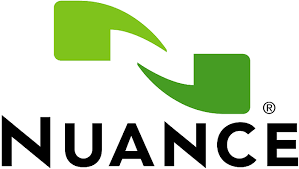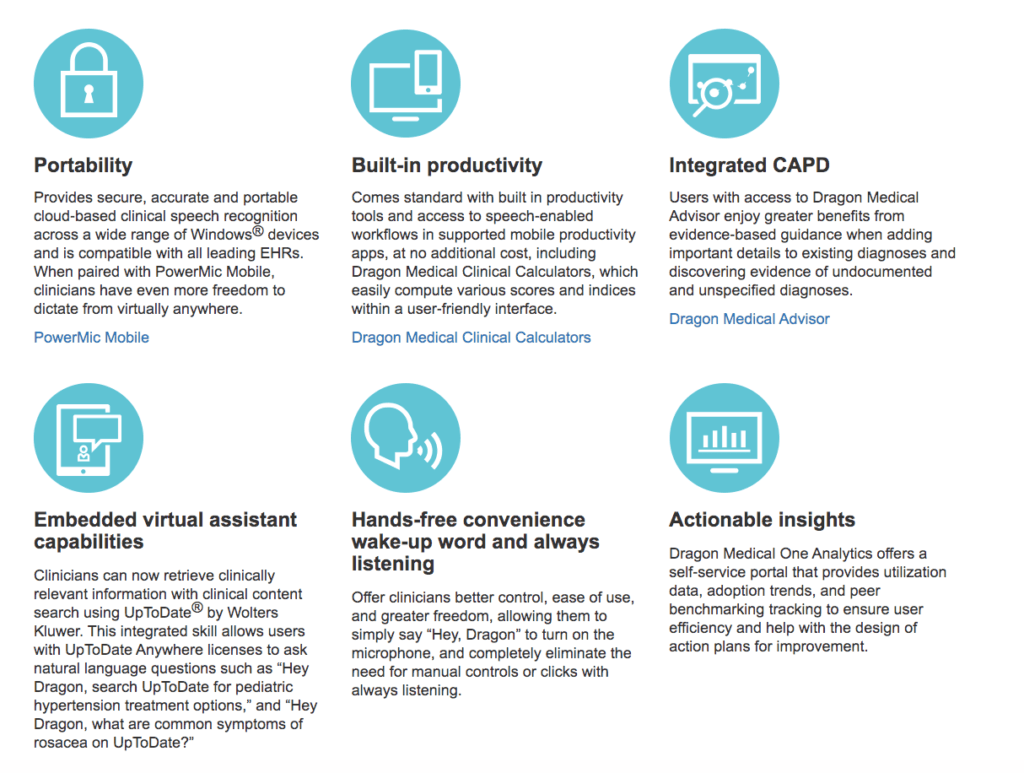Nuance: an AI solution physicians love

Nuance has developed AI solutions that physicians love, captured a significant portion of the U.S. health care market, and is primed to be a major player going forward in the clinical recommendation and diagnostics space.
The Problem
Under the Health Information Technology for Economic and Clinical Health (HITECH) Act enacted in 2009, the U.S. Department of Health and Human Services (HHS) spent $36.5B promoting expansion of electronic health record (EHR) adoption. [1] The legislation was considered at the time to be one of the most foundational elements of health care reform and promised that paperwork would be streamlined, waste would be reduced, and cost-effective health care would become a priority. Though well-intentioned, the wide adoption of EHRs also had deleterious effects. Over the past ten years, EHR use has become the leading cause of physician dissatisfaction, stress, burnout, and desire to leave the profession. [2][3][4] Physicians today spend more than twice as much time at the computer documenting patient encounters as they do with their patients; EHR work often extends well beyond the clinical workday.
Value Creation
To help solve the problem of a burdensome EHR system, Dragon NaturallySpeaking is a speech recognition software package developed by Dragon Systems, which is owned by Nuance Communications. Dragon leverages “Conversational AI” to recognize individual speech patterns and help clinicians document their notes and care plans with high accuracy. When a physician first starts using Dragon, he or she can speak into the device for a period of time and manually correct any dictation errors that are made. With natural language processing aided by machine learning, the algorithm adapts quickly to individual differences in accent, intonation, and pronunciation, allowing for a constant learning feedback loop. The more the user utilizes Dragon for dictation and correct any remaining errors, the more the algorithm improves and correctly identifies the right word the next time. The resulting accuracy of dictation can reach up to 99%, higher than most rates of typos.[5] Importantly, Dragon is also integrated with the major EHR companies (e.g. Epic and Cerner) and allows for the ability to create personalized medical vocabularies and templates to be shared across physicians and organizations.
The value creation has been impressive – documentation time decreases by 45% with the use of Dragon.[6] Residency programs around the U.S. advertise their use of Dragon dictation as a major benefit to attract top physicians. One hospital system found a 65% reduction in the amount of time nurses take to triage patients, with 75% of staff reporting increased accuracy in clinical documentation, and 100% of staff reporting faster clinical documentation.
Dragon value proposition (Source: Nuance website)
Value Capture
Nuance has been able to capture a large market share due to its successful implementation of AI into existing hospital operating models. More than 10,000 healthcare organizations use Dragon, including 500,000 clinicians worldwide, 90% of U.S. hospitals, and 80% of all radiologists. The company operates using a subscription model, with a $525 initial installation and training fee followed by a monthly fee of $99 per user for smaller healthcare practices.[9] Healthcare organizations with more than 50 employees are offered a bulk discount (of an undisclosed amount).
Expansion beyond Dictation
After capturing such a large proportion of the US physician market, Nuance has since moved beyond just conversational AI and dictation assistance. Its product suite now includes offerings for medical record and billing optimization. Due to the large trove of data it has been able to obtain through its dictation service, Nuance is able to evaluate the most common medical documentation errors and sources of inefficiency in clinical workflow. It is therefore positioned to help coordinate EHR training and consulting services, with reported 98% approval rate from physicians, an average $3000 increase in efficiency value per physician per month, and 39% improvement in time spent retrieving data.[10] More recently, Nuance has been moving into the diagnostics and clinical decision making space, with goals of developing AI algorithms to aid in radiology imaging analysis.
Nuance has been able to obtain such high levels of physician buy-in and utilization because it started by addressing a major pain point (documentation). From there, it gathered the data it needed to help create additional value through optimization of workflow and improving efficiency. Now that physicians are comfortable with the software and brand name, the company is well positioned to be a major player in the AI diagnostics and clinical assessment recommendation space. Throughout the process, Nuance has taken on a complementation rather than replacement approach which has aided in its adoption and popularity, using language throughout its site such as “Building on the intelligence your clinicians already have.”
References
- https://www.washingtonpost.com/wp-dyn/content/article/2009/05/15/AR2009051503667.html
- Friedberg MW, Chen PG, Van Busum KR, et al. Research report: factors affecting physician professional satisfaction and their implications for patient care, health systems, and health policy. Santa Monica, CA: Rand Corporation, 2013.
- Babbott S, Manwell LB, Brown R, et al. Electronic medical records and physician stress in primary care: results from the MEMO Study. J Am Med Inform Assoc. 2014;21(e1): e100-106.
- Roberts DL, Shanafelt TD, Dyrbye LN, West CP. A national comparison of burnout and work-life balance among internal medicine hospitalists and outpatient general internists. J Hosp Med. 2014;9(3):176-181.
- https://www.techradar.com/reviews/dragon-medical-one
- https://www.nuance.com/healthcare/artificial-intelligence.html
- https://findbiometrics.com/hospital-expands-dragon-medical-platform-use-510111/
- https://hitconsultant.net/2019/10/07/nuance-ai-powered-clinical-guidance-for-dragon-medical-advisor/#.Xp5GEtMzYUs
- https://www.image-management.com/dragon-medical-one/
- https://www.nuance.com/healthcare/services/ehr-services.html




Thanks for sharing, Joe! I didn’t realize that Nuance was moving into radiology image analysis. I agree that they have definitely built a strong brand and goodwill in the medical space, but I wonder how they have navigated data-ownership questions. Right now, I don’t believe they own note data by default for people that use their software, but I imagine they have their foot in the door for partnering with hospitals on data-sharing agreements. I would have expected Nuance to move more in the direction of Siri for Healthcare by enabiliing smart commands for controlling the EHR, but it still will remain to be seen how doctors see Dragon gaining more opinions over what is written than just doing what it is told.